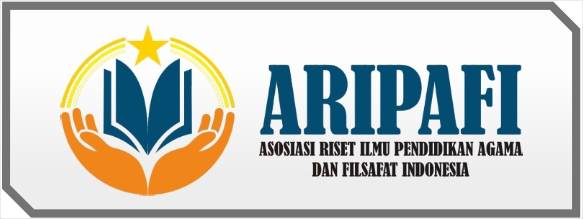Pentingnya Insecurity untuk Mengatasi serta Menyadarkan Kesadaran Diri Agar Tampil Lebih Percaya Diri
DOI:
https://doi.org/10.59581/garuda.v3i1.4619Keywords:
Insecure, self-awareness, self-confidenceAbstract
Insecure in Indonesian means unsafe. Meanwhile, according to the APA Dictionary of Psychology, insecurity or insecurity is a feeling of inadequacy and lack of self-confidence. While self-awareness is the ability to understand and recognize one's own emotions, strengths, weaknesses, values, and motivations, the implementation of self-awareness in social and emotional learning (SEL) is very important to help students develop emotionally and socially. Meanwhile, self-confidence is confidence and belief in one's abilities, being optimistic, objective, responsible, rational and realistic to solve and overcome a problem with an upside down situation so that it can provide something and be accepted by other people and the environment. Insecurity is sometimes necessary in everyday life to increase self-awareness and grow self-confidence. Many cases often occur among teenagers throughout the world, factors also come from the surrounding environment, whether it be friends or sometimes even family.
References
Aurellia, A. (2022). Lady Diana’s constructed representation of psychological disorder in the documentary “Diana: In Her Own Words”. Jurnal Pendidikan, 8(1).
Lombu, D., & Lase, F. (2023). Membangun rasa percaya diri individu dalam komunikasi interpersonal. Jurnal Pendidikan, 2(1), 241–251. https://doi.org/10.56248/educativo.v2i1.144
Mulya, G., & Lengkana, A. S. (2020). Pengaruh kepercayaan diri, motivasi belajar terhadap prestasi belajar pendidikan jasmani. Competitor: Jurnal Pendidikan Kepelatihan Olahraga, 12(2), 83. https://doi.org/10.26858/cjpko.v12i2.13781
Nurjannah, N. (2024). Konseling dengan pendekatan teknik strength bombardment dan syukur untuk mengatasi insecure pada remaja. Counseling With a Strength Bombardment and Gratitude Technique Approach to Overcome Pendahuluan.
Nursalma, Y. A. (2021). Skripsi oleh: Nursalma Yola Anggita Program Studi Seni Rupa Murni.
Putri, A. A. D. E. (2024). Perancangan visual book tentang insecurity.
Safitri, E., Wawan, Setiawan, A., & Darmayanti, R. (2023). Eksperimentasi model pembelajaran problem-based learning berbantuan Kahoot terhadap kepercayaan diri dan prestasi belajar. Jurnal Penelitian Tindakan Kelas, 1(2), 57–61. https://doi.org/10.61650/jptk.v1i2.154
Sari, D. I. P., Prayogo, M. M., & Saraswati, A. R. (2020). Brain dance sebagai alternatif stimuli untuk menumbuhkan rasa percaya diri. Trihayu: Jurnal Pendidikan Ke-SD-an, 7(1), 1014–1023. https://doi.org/10.30738/trihayu.v7i1.8400
Sestiani, R. A., & Muhid, A. (2022). Pentingnya dukungan sosial terhadap kepercayaan diri penyintas bullying: Literature review. Jurnal Tematik, 3(2), 245–251. https://journals.usm.ac.id/index.php/tematik/article/view/4568
Vega, A. De, Hapidin, H., & Karnadi, K. (2019). Pengaruh pola asuh dan kekerasan verbal terhadap kepercayaan diri (self-confidence). Jurnal Obsesi: Jurnal Pendidikan Anak Usia Dini, 3(2), 433. https://doi.org/10.31004/obsesi.v3i2.227
Downloads
Published
How to Cite
Issue
Section
License
Copyright (c) 2025 Garuda: Jurnal Pendidikan Kewarganegaraan Dan Filsafat

This work is licensed under a Creative Commons Attribution-ShareAlike 4.0 International License.













